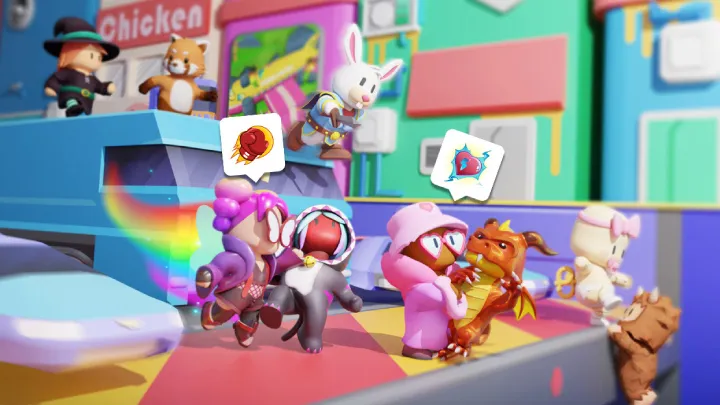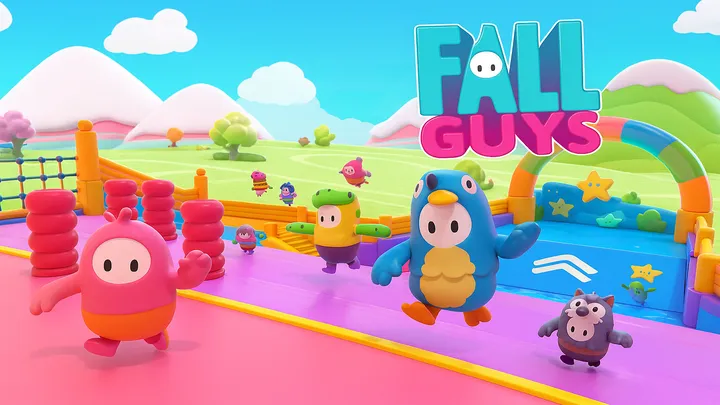Introduction
Stumble Guys, the popular multiplayer party game, has garnered attention for its chaotic and fun gameplay reminiscent of titles like Fall Guys. Players navigate through a series of obstacle courses, competing with others to reach the finish line first. However, this seemingly lighthearted game grapples with a critical issue: the balance between skill and luck. While skillful players can often outmaneuver their opponents, the randomness of obstacles and game mechanics can lead to frustrating outcomes, especially for those who invest significant time in honing their skills. This article delves deep into this issue, exploring its implications for player experience, game design, and community dynamics.

The Nature of Stumble Guys Gameplay
The foundation of Stumble Guys lies in its unique gameplay mechanics that blend competitive racing with whimsical obstacles. Players control their characters as they run, jump, and stumble through various challenges. The game's design encourages a mix of strategy and spontaneity, making each round unpredictable.
Game Mechanics Overview
The mechanics of Stumble Guys are simple yet engaging. Players must navigate through colorful, often absurd obstacles that can send them tumbling or hinder their progress. Each level introduces new challenges, from spinning hammers to slippery platforms, ensuring that players remain on their toes.
The Role of Randomness
One of the distinguishing features of Stumble Guys is its reliance on randomness. While players can develop strategies to tackle specific obstacles, the game introduces elements that can drastically alter outcomes. This unpredictability can be exciting, yet it raises questions about fairness and the extent to which skill influences success.
Skill vs. Luck: A Delicate Balance
The tension between skill and luck is a recurring theme in Stumble Guys. Players often find themselves frustrated when their meticulously planned strategies are thwarted by unforeseen factors.
Skill Development
Skilled players invest time in understanding the game mechanics, learning the best ways to navigate obstacles, and developing reflexes that allow them to react quickly. This skill development is crucial for consistent performance in the game.
Impact of Luck
However, even the most skilled players can be at the mercy of luck. Randomly generated obstacles or unexpected player actions can lead to outcomes that seem unjust. This dynamic can undermine the satisfaction of skill-based play, leaving players feeling as though their efforts were futile.
Community Reactions to Luck-Based Outcomes

The community's response to the balance of skill and luck in Stumble Guys has been varied, reflecting the diverse opinions of players.
Frustration Among Players
Many players express frustration when they believe that luck plays a disproportionate role in determining outcomes. Forums and social media platforms are filled with discussions about instances where skilled players were eliminated due to unforeseen obstacles or mishaps.
Celebration of Chaos
Conversely, some players embrace the chaotic nature of the game. They argue that the randomness adds to the fun and excitement, making each match a unique experience. This perspective highlights the diverse motivations behind player engagement with Stumble Guys.
Game Design Challenges
From a game design perspective, balancing skill and luck presents significant challenges. Developers must consider how to create a fair yet entertaining experience for players.
Designing Fair Obstacles
Creating obstacles that are challenging yet fair is crucial. Developers must ensure that players of varying skill levels can enjoy the game without feeling cheated by random elements. This requires careful testing and iteration to achieve the right balance.
Feedback Mechanisms
Incorporating player feedback is essential for refining game mechanics. Developers can use community insights to identify issues related to skill and luck, making adjustments to improve the overall experience.
The Role of Player Skill in Competitive Play
In competitive settings, the interplay between skill and luck becomes even more pronounced. Players often seek to showcase their abilities in a competitive environment, but luck can disrupt these efforts.
Competitive Tournaments
Stumble Guys has seen the emergence of competitive tournaments where players can test their skills against others. However, the element of luck can lead to unexpected outcomes that may not accurately reflect a player’s abilities.
Strategies for Competitive Success
To succeed in competitive play, players must develop strategies that account for both skill and luck. This includes adapting to random elements and understanding how to mitigate their impact on gameplay.
Player Retention and Satisfaction
The balance of skill and luck also plays a significant role in player retention and satisfaction. A game that feels unfair may drive players away, while one that rewards skill can foster a loyal community.
Impact on New Players
For newer players, the apparent randomness of outcomes can be discouraging. If they feel that skill does not significantly influence their success, they may be less likely to continue playing.
Strategies for Retaining Players
To retain players, developers must find ways to emphasize skill and provide opportunities for growth. This can include tutorials, skill-based matchmaking, and rewards for improvement.
Future Directions for Stumble Guys
As the game evolves, addressing the balance between skill and luck will be crucial for its longevity. Developers must consider how to enhance the experience while maintaining the core gameplay that players love.
Potential Updates
Future updates could include new game modes that emphasize skill over luck, allowing players to engage in more predictable environments. This could cater to competitive players looking for a fairer challenge.
Community Involvement
Encouraging community involvement in the development process can lead to insights that help refine the balance of skill and luck. Developer-community collaborations can foster a sense of ownership and investment in the game’s future.
Conclusion
The balance between skill and luck in Stumble Guys is a complex issue that affects player experience, community dynamics, and game design. While the randomness inherent in the game adds excitement, it can also lead to frustration among players who invest time in honing their skills. As the game continues to evolve, addressing this balance will be essential for maintaining player engagement and satisfaction. Developers must strive to create an environment where skill can shine while still embracing the chaotic fun that makes Stumble Guys unique.

















